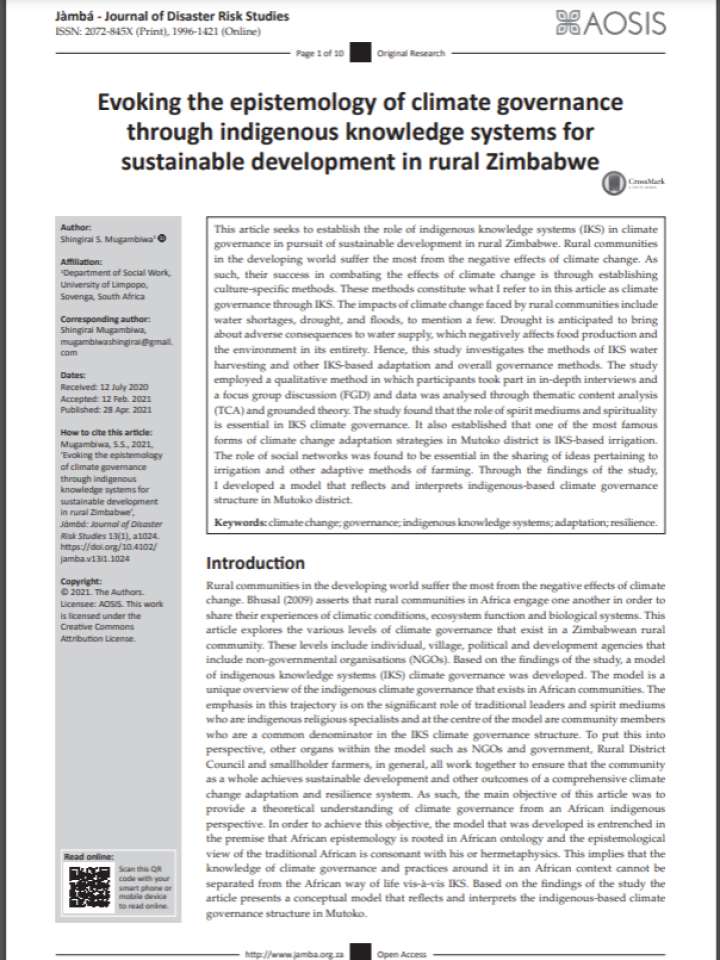Evoking the epistemology of climate governance through indigenous knowledge systems for sustainable development in rural Zimbabwe
This article seeks to establish the role of indigenous knowledge systems (IKS) in climate governance in pursuit of sustainable development in rural Zimbabwe. Rural communities in the developing world suffer the most from the negative effects of climate change. As such, their success in combating the effects of climate change is through establishing culture-specific methods.
The impacts of climate change faced by rural communities include water shortages, drought, and floods, to mention a few. Drought is anticipated to bring about adverse consequences to water supply, which negatively affects food production and the environment in its entirety. Hence, this study investigates the methods of IKS water harvesting and other IKS-based adaptation and overall governance methods.
The study found that the role of spirit mediums and spirituality is essential in IKS climate governance. It also established that one of the most famous forms of climate change adaptation strategies in Mutoko district is IKS-based irrigation. The role of social networks was found to be essential in the sharing of ideas pertaining to irrigation and other adaptive methods of farming.
Explore further
